WWII Imperial Japanese Secret Report Mongolia Livestock Resource Survey
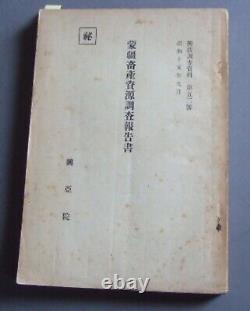
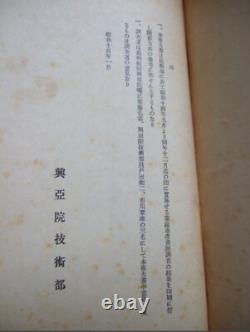
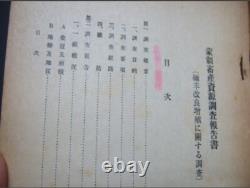
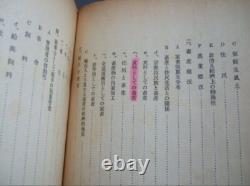
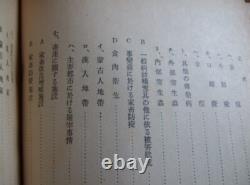
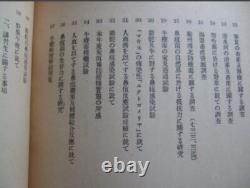
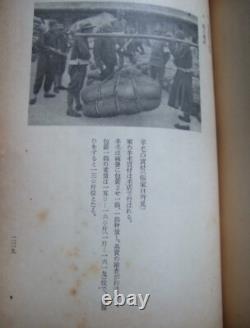
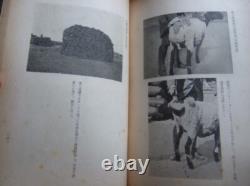
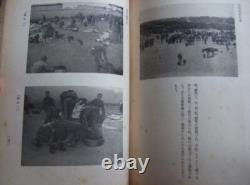
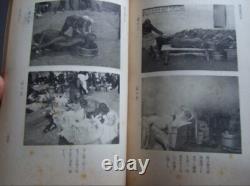


This is an original classified report by the Imperial Japanese Asia Development Board (Koain) titled "Mongolian Livestock Resource Survey Report" (1940, Showa 15), focusing on Inner Mongolia under the Mengjiang United Autonomous Government, a puppet regime of Japan during the Second Sino-Japanese War. About Koain (Asia Development Board). Koain was a Japanese government organization established in 1938 under the Konoe administration to oversee and coordinate the economic, political, and resource management of occupied territories in China and Mongolia. It played a vital role in Japan's imperial strategy by controlling industrial development, transportation, and resource exploitation in occupied Asia. This confidential report (marked with the character = secret) was created as part of Japan's strategic efforts to secure livestock resources, especially sheep, for military use. It provides detailed field research on. Livestock population and distribution in Mongolia. Relationship between local Mongol nomads, Han Chinese, and livestock. Veterinary science, diseases, and epidemic control. Wool production, meat supply, and military resource potential. The economic importance of sheep to the Japanese army and colonial administration. This rare document shows how Japan planned to utilize Mongolian livestock as a crucial part of its war economy - providing wool for uniforms, blankets, and other military supplies, as well as meat and leather for the troops. Condition: Shows age, stains, and wear, but overall good for its age.
A remarkable first-hand resource for historians, military collectors, and those interested in Japanese colonial activities and the undeclared aspects of the Second Sino-Japanese War. Own a Piece of History.


